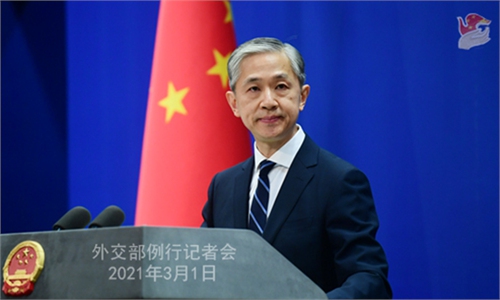
Illustration: Liu Rui/GT
The Government of Montenegro's request to the European Union's Commission for help to repay the debt to the Chinese ExIm bank for the highway building serves as a new cause for accusations of China's internationally important Belt and Road Initiative (BRI).Numerous media renew and even strengthen the critique of this globally useful project, groundlessly accusing Chinese foreign policy of its alleged intentions to create a "debt trap." Reportedly, the country can become economically dependent on China, making the space for its political dependence on China.
Qualifying these accusations as unfounded, I have already expressed my opinion on the value of the BRI. I see it as a globally valuable, as an essential affirmation of multilateralism, as a chance for strengthening regional connectivity, and as a development opportunity for all the countries participating. I consider President Xi Jinping's initiative to implement and affirm this project as a huge chance for participating countries to use attractive and competitive financial potentials of the BRI.
Thanks to this, they can foster their development in the strategically important infrastructure projects, and do more regarding regional connections. Additionally, through links with and within the regions, participants can also affirm a noble mission of multilateralism and intensify closer cooperation in the economy and beyond.
Through its banks, China has provided the most favorable and competent loans, has offered reputable infrastructure contractors, and has given the possibility for domestic contractors as partners in these projects, allowing local enterprises to be involved. Through credits and contractors building along and with local companies, this initiative is an excellent opportunity for the economic development of participating countries using its benefits.
I am sure that Montenegro has recognized and properly utilized these benefits. To implement the most important road infrastructure project, the highway connecting its coast with the northern region, up to the border with Serbia, Montenegro selected the loan from the Chinese Exim bank. At the same time, it chose the Chinese Road and Bridge Corporation CRBC (one of the leading Chinese companies for bridges and road construction) as a contractor for the implementation. These Chinese companies were neither the first nor the only ones with whom the Montenegrin government negotiated.
Montenegro had been interested in building this highway for decades, rightfully qualifying it as a "project of the century." The road shall connect Bar, the Montenegrin biggest coastal town and harbor, with the Serbian capital Belgrade, the biggest and economically strongest city in the Western Balkans. This highway will enable traffic connectivity of the most excellent quality, better economic, and overall cooperation between Montenegro and Serbia. It will also boost connectivity between citizens of Montenegro and Serbia and reaffirm close ties between the two friendly states.
Bearing in mind the strategic importance of the project, Montenegro has carefully prepared its implementation. It decided to build the most important, the most complicated, and the most expensive section as a priority. This part of the highway connects the Montenegrin capital Podgorica with Matesevo, a place in the northern part of Montenegro, i.e., central and north Montenegro. By building this section, Montenegro will significantly benefit by enabling more accessible and faster development of the northern region, which has huge natural resources, and which utilization is limited by inadequate road connectivity.
This section of the highway shall increasingly slow the internal migration of the citizens from north to the more developed center and south regions and creates a precondition for bringing back those who left the country searching for a better economic environment. Additionally, the existing 70km-long road will be replaced by a modern highway, which will provide its customers with the most outstanding traffic security.
It is important to emphasize that the existing road has beautiful landscapes, but it is extremely dangerous and rightfully known as the "road of dead." Though, apart from economic and demographic reasons, this section has its equally important security priority.
To provide financing and building for this highway, the government of Montenegro had accepted an initiative by then leading road and bridges construction company from neighboring and friendly Croatia, which offered to secure implementation of the project. It was also an opportunity to strengthen and intensify the overall relations between two countries. But this company could not meet the standards and secure funds, so the government of Montenegro has started to carefully and responsibly search for a new partner for financing this great, not just an infrastructural project.
Allocating 15 percent of the state budget for financing this project, the government of Montenegro was at the same time carefully in search of the loan for the rest of the necessary funds. After checking all the possibilities and offers from regional and global infrastructure companies and their creditors, it chose the loan at Chinese ExIm bank and picked CRBC as a contractor. The loan terms the ExIm bank offered were by far the most favorable, and no bank or financial organization could match them. Following its best state interest, Montenegro took this loan. The CRBC as a contractor, along with significant participation from local construction companies, almost finished building this section of highway. The highway is located at one of the most challenging landscapes for building in whole Europe. The highway shall be put into operation in less than a year and shall start to yield its benefits. Unfortunately, instead of negotiations for continuing the building of new, shorter, and less expensive sections in Montenegro and outside of it, the issue of the Chinese "debt trap" to Montenegro was groundlessly opened.
The issue of the Chinese "debt trap" is groundless for a couple of reasons.
First, no matter the percent of the debt, which is around one-third of Montenegrin annual GDP and one-third of the total Montenegrin debt, it is pretty sure that Montenegro can pay off the debt.
With less economic activity, reduced income caused by an economic decline (most importantly tourism), the pay off would affect the realization of ongoing investment, but it certainly would not threaten budget liquidity and Montenegrin responsibility as a reliable partner of banks and financial institutions. With an expectation to continue to implement the ongoing projects through so called capital budgets, it was a legitimate expectation from the ExIm bank to improve the conditions for pay-off.
Additionally, relations between Montenegro and China have always been relations of mutual respect and sincere cooperation. No matter the size, China has always shown great respect towards Montenegro. That respect is not just a consequence of Montenegro's respect for the one-China principle and its multilateral dedications, but also the level of inter-state cooperation. I am proud that I contributed to that as a President of Montenegro, especially cooperating with the Confucius Institute and affirming traditional Chinese medicine in Montenegro.
Finally, I do not doubt that the ExIm bank will support Montenegro in providing favorable conditions for paying off the loan in the time of the COVID-19 pandemic and its difficult consequences. I have no doubts about a positive standpoint of the ExIm bank toward this issue. Not just because of the aforesaid facts, but also for breaking the ungrounded prejudice of the "debt trap" attached to the great and important BRI. Montenegro does not have, and did not deserve, to be attached to such prejudice.
The author served as the President of Montenegro from 2003 to 2018. opinion@globaltimes.com.cn



